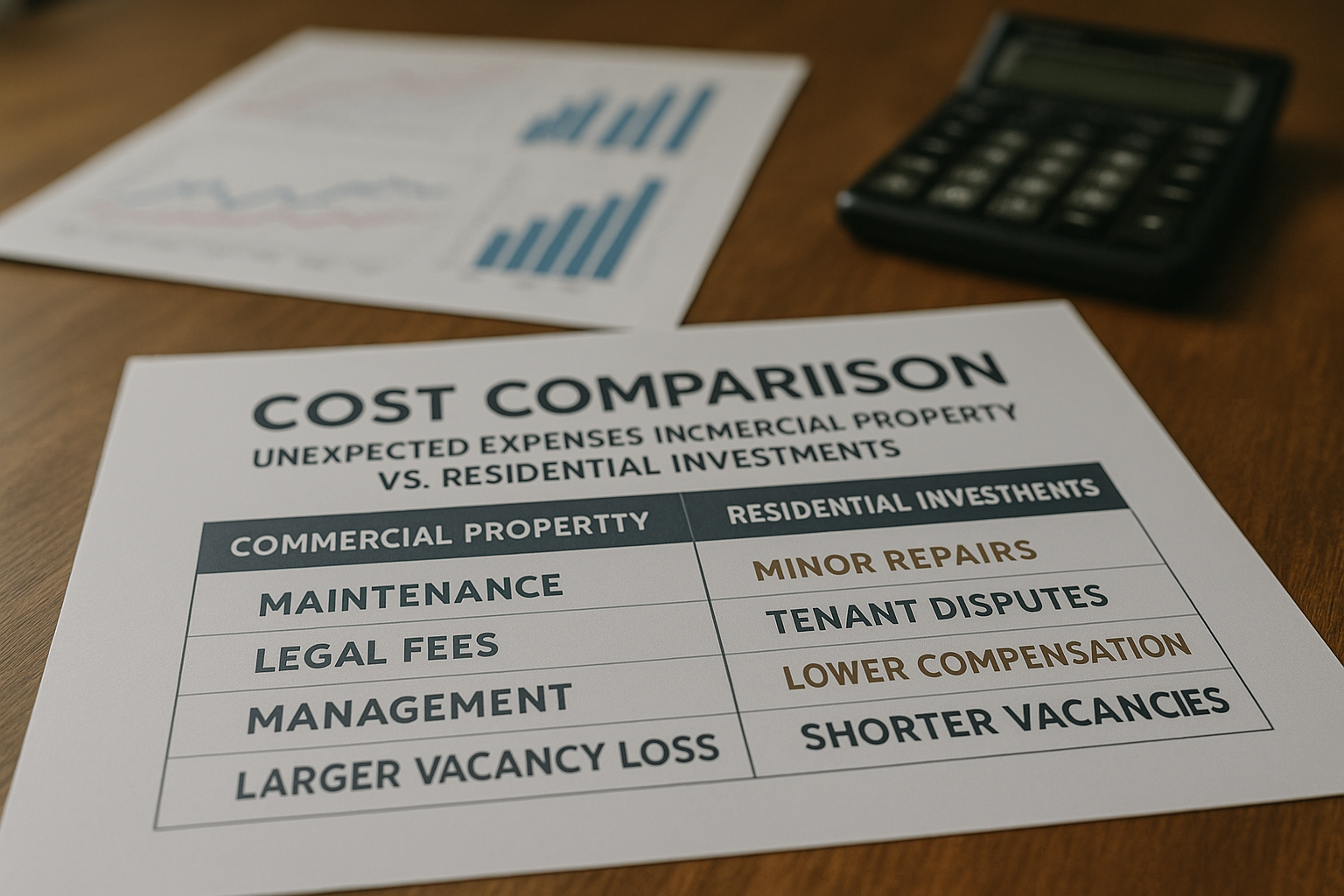Why Commercial Property Costs Could Surprise Residential Investors
If you're considering diving into the commercial property market, you might be surprised by the unique cost structures and potential advantages that await you—browse options and discover the hidden opportunities that could redefine your investment strategy.

Understanding Commercial Property Costs
Investing in commercial real estate can be a lucrative venture, but it requires a nuanced understanding of the costs involved. Unlike residential properties, commercial properties often come with a different set of financial considerations. For starters, the initial purchase price of commercial real estate can be significantly higher due to the larger scale and prime locations often associated with these properties. However, savvy investors know that the potential return on investment can justify these upfront costs.
Key Cost Factors in Commercial Real Estate
One of the primary cost factors in commercial real estate is the location. Prime urban areas tend to have higher prices per square foot, but they also offer greater foot traffic and business potential. Additionally, commercial properties often require more substantial maintenance and operational costs, including utilities, insurance, and property management fees. These ongoing expenses can add up, making it crucial for investors to accurately forecast their budgets.
Another consideration is the cost of financing commercial properties. Interest rates for commercial loans can be higher than those for residential loans, and lenders often require larger down payments. This can affect your cash flow and overall investment strategy. It's essential to shop around and compare different financing options to find the most favorable terms.
Revenue Potential and Tax Benefits
Despite the higher costs, commercial properties can offer substantial revenue potential. Lease agreements for commercial spaces are typically longer-term than residential leases, providing more stability and predictability in income. Additionally, commercial tenants are often responsible for property taxes, insurance, and maintenance, reducing the landlord's overhead costs.
Investors can also benefit from tax incentives, such as depreciation and interest deductions, which can significantly improve the profitability of a commercial property investment. These tax benefits can offset some of the higher costs associated with commercial real estate, making it a more attractive option for investors seeking long-term gains.
Market Trends and Opportunities
The commercial real estate market is constantly evolving, with trends such as the rise of e-commerce and remote work impacting demand for certain types of properties. For example, industrial spaces and warehouses have seen increased demand due to the growth of online shopping, while traditional office spaces may face challenges as more companies adopt flexible work policies.
It's crucial for investors to stay informed about these trends and adjust their strategies accordingly. By doing so, you can identify emerging opportunities and make informed decisions that align with your investment goals. To explore these dynamics further, you can visit websites that specialize in commercial real estate analysis and market forecasts.
Exploring Specialized Services
For those new to commercial real estate, partnering with a specialized service can provide valuable insights and support. Real estate investment trusts (REITs) offer a way to invest in commercial properties without the need for direct ownership, providing diversification and professional management. Additionally, commercial real estate brokers can help you navigate the complexities of the market and identify properties that meet your investment criteria.
These services can be particularly beneficial if you're transitioning from residential to commercial investments, as they offer expertise and resources tailored to the commercial sector. By leveraging these specialized options, you can enhance your investment strategy and maximize your returns.
While commercial property costs may initially surprise residential investors, understanding the unique financial landscape and potential benefits can transform these challenges into opportunities. By exploring various options and staying informed about market trends, you can position yourself for success in the commercial real estate market.